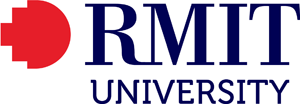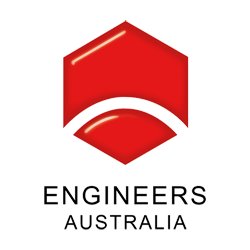Bachelor of Engineering (Mechanical Engineering) (Honours)
FT: 24 months
PT: 36 months
Introduction
Mechanical engineering involves the planning, design and development of machinery, solving problems and improving the machines used in everyday life.
The Bachelor of Engineering (Mechanical Engineering) (Honours) will provide you with the skills to become a professional and highly employable mechanical engineer, within a national and international context.
Programme Features
Globally accredited qualification by professional bodies
This programme is fully accredited by the Hong Kong Institution of Engineers (HKIE) and Engineers Australia. Students are eligible for membership of Engineers Australia, with the degree recognised by all 18 countries that are signatories to the Washington Accord, include the USA, UK, China, New Zealand, Japan, Korea and Singapore.
1-week residential visit to RMIT University in Melbourne
You will undertake some of your practical laboratory work at the RMIT University campus in Melbourne during the one-week residential visit. Your study in Melbourne includes more advanced and comprehensive physical laboratory work, computational workshops, computer-aided manufacturing workshop and Industrial wind tunnel workshop, etc. You may also undertake industry site visits and project reviews during the visit.
Student achievements
17% outstanding students awarded Government Scholarships in 2023
Employable graduates
Our graduates have been employed as Assistant Engineer and Assistant Ship Inspector by the HKSAR Government.
Courses^
This programme is equivalent to the 3rd and 4th years of the RMIT Bachelor of Engineering (Mechanical Engineering) (Honours) degree with an entry point to the programme appropriate for Higher Diploma in Mechanical Engineering graduates.
Each academic year consists of 3 trimesters and the programme is delivered in full-time mode over 6 trimesters and part-time mode over 8 trimesters. There is a total of 192 credit points in this programme. The programme is delivered through a combination of face-to-face intensive workshops, weekly tutorials, laboratory sessions and online components.
The programme structure consists of the following 16 courses which include 15 compulsory courses and 1 technical elective:
Core Courses
- Mechanics of Fluids and Solids 2
-
The solids part of this course deals with analytical techniques for the solution of linear elastic stress and strain problems, including displacement of beams and analysis of simple indeterminately supported structures.
- Engineering Dynamics
-
In this course you will study the state of rest or motion of bodies under the action of a single or multiple forces. Therefore, this course deals with Newton’s Second Law of motion which is the foundation for the design and analysis of various structural, mechanical and electrical devices found in a wide range of engineering applications. You will study the kinematics and kinetics of particles and rigid bodies using force and acceleration, work and energy, and impulse and momentum principles.
- Solid Mechanics 3 (CEF Module)
-
 (CEF Code: 36Z141525)
(CEF Code: 36Z141525)
This course is designed to expand your knowledge in the field of non-linear mechanics of solids and its application to structural analysis, machine design and material processing. Through this course you will be able to understand the influence of non-linearities on the behaviour of structures. The course aims to equip you with essential analytical skills which have a particular bearing on your professional practice as mechanical engineers. - Mechanical Vibrations
-
This course deals with the study of vibration in mechanical systems which is concerned with the oscillatory motions of bodies and the forces associated with them. This course aims to provide you with an understanding of the nature and behaviour of dynamic engineering systems and the capability of applying the knowledge of mathematics, science, and engineering to solve engineering vibration problems.
- Heat Transfer
-
In this course, the fundamentals and principles of thermal fluid mechanics will be reviewed through the use of the real-world examples and be advanced to analyse the practical thermo-fluid systems for engineering design applications. Collectively, they should provide you with a sound fundamental as well as a practical knowledge of this area of engineering.
- Mechanical Design 2
-
This course aims to give practice in this design project situation, in the use of knowledge gained from a wide range of other courses previously or concurrently studied. The work on the particular system that will be studied (a compressed air supply system for a factory) involves designing an air storage pressure vessel. Learning is problem-based for the project duration with an aim to develop students as self-directed learners and prepare them for real-world challenges.
- Renewable Energy Systems
-
In this course, you will learn about the operation and performance of three renewable energy technologies: grid connected wind turbines; photovoltaic systems; and solar thermal systems and energy storage. The emphasis will be on the sizing, design, selection and performance evaluation of renewable energy equipment for given applications.
- Finite Element Analysis (CEF Module)
-
 (CEF Code: 36Z121656)
(CEF Code: 36Z121656)The course introduces you to theoretical basics and practical application of the finite element method as well as to related numerical modelling techniques. It is designed to enable you to solve practical problems related to solid mechanics, machines and structures. This course provides a necessary tool for the analysis and solution of practical structures and processes.
- Management of Mechanical Design and Research
-
In this course you will actively explore contemporary issues and practices relating to the management of engineering design and research projects and product design in particular in a wide range of industrial settings. In conjunction with this, you will be encouraged to explore in-depth and apply in integrated engineering design and/or research contexts broader issues including critical review of appropriate information, relevant aspects of intellectual property, professional ethics, risk/hazard management, costing, project management, environmental principles and sustainability in general. Contextual studies involving feasibility and value analysis will be used to provide you, working in a team with an opportunity to explore real-world problems relating to product design and development.
- Automatic Control (CEF Module)
-
 (CEF Code: 36Z121648)
(CEF Code: 36Z121648)This course deals with the application of control theory in general engineering applications. Analysis of automatic control systems using transfer function, block diagram, time response and frequency response are discussed and applied to control system evaluation and design.
- Mechanics of Machines
-
In this course you will study advanced concepts of kinematic and dynamic modelling and analysis of mechanisms and machines, including linkage mechanisms and cam mechanisms, reciprocating and rotating machinery. The course enables you to explore in depth core mechanical engineering concepts by integrating and applying contemporary analytical, computational and experimental methods. It relates kinematics and dynamics of mechanisms and machines to their design and allows you to relate theory and practice using a problem-based approach in which you develop project management skills.
- Research Methods for Engineers
-
Research methods are critical aspects of engineering professional practice and scholarship. This course will provide an overview with applied exercises of best practice in addressing an engineering challenge in a systematic manner, evaluating background literature, adhering to ethics, documentation strategies, and communication in the form of both concise as well as detailed written reports, and oral and written communication of complex engineering concepts to a general audience.
- Thermal-Fluid System Design
-
The course aims to equip you with tools and methods to design real-world thermal/fluid systems. Topics include exergy analysis, thermo-economic analysis, rotodynamic machinery, energy storage system, engineering ethics and design decisions and engineering economics and its application in real-world.
- Engineering Capstone Project A
-
This first part of the project (Part A) focuses on:
- articulation of the project requirements, challenge, need, problem or feasibility;
- establishment of design criteria and constraints;
- project planning;
- the critical appraisal of all the relevant published material by way of a comprehensive;
- literature search and review;
- benchmarking of all related and relevant solutions; and hence
- well-informed consideration of possible solutions.
- Engineering Capstone Project B
-
This second part of the project (Part B) focuses on:
- summarising the outcomes from your ‘Engineering Capstone Project (Part A)’;
- clearly articulating a plan, including milestones and responsibilities;
- the application of a methodical design process for the systemic optimisation and embodiment of an engineered solution;
- the manufacture of a tangible deliverable;
- the test and verification of the solution; and
- a comprehensive suite of relevant project documentation (such as reports and drawings).
Elective Course+ (Complete one of the following electives)
- Applied Heat and Mass Transfer
-
This course is a final year elective course building on earlier core thermo-fluid courses. Within this course there are extended topics to the heat transfer knowledge attained from the previous studies. The topics will have applications with HVAC, refrigeration and air conditioning, and other industrial heating and cooling applications.
- Professional Engineering Experience
-
This course includes a Work Integrated Learning experience in which your knowledge and skills will be applied and assessed in a real workplace context and where feedback from a supervisor is integral to your experience. This will help you develop the competencies required to become a professional engineer chartered by Washington Accord signatories such as Engineers Australia, and the Hong Kong Institution of Engineers.
- Computational Fluid Dynamics
-
This course gives you an introduction to computational fluid dynamics (CFD) and numerical heat transfer (NHT) modelling technology for thermo-fluid related applications. It also gives you a proper background for the intelligent and appropriate use of commercial CFD packages.
- Building Information Modelling
-
The purpose of this course is to provide the students with the basic understanding and knowledge of the state of the art BIM and advanced technologies such as sensing and tracking (3D laser scanning, photogrammetry, etc.), Virtual Reality (VR), Augmented Reality (AR) and Mixed Reality (MR), Unmanned Arial Vehicle (UAV) and robotics. Upon the acquisition of knowledge, this course also aims to equip students with skills to leverage these technologies to successfully complete projects.
For part-time mode only. This course has been included in the list of reimbursable courses under Continuing Education Fund. The mother course (Bachelor of Engineering (Mechanical Engineering) (Honours)) of this module is recognised under the Qualifications Framework (QF Level 5).
+ RMIT may alter the programme, curriculum or regulations at its discretion. Some of the electives may not be offered in a given year depending on factors such as enrollment and scheduling. The sequencing of the above courses may vary from year to year, but the Engineering Capstone Project may not be completed until the student’s final trimester
Assessment^
Assignment, laboratory exercise, project work and final examination.
^Under review and subject to change.
|
|
Professional Recognition
|
|
|
|
|
|
|
|
QF Level
|
QF Level : Level 5 |
|
|
Importance of choosing a non-local top-up with QF Level 5Employment
|
|
Entry Requirements
OR
|
English Proficiency Requirements
OR
|
Fees
- Application Fee : HK$200 (No application fee before the deadline!)
- Registration Fee : HK$3,500
- Tuition Fee : HK$219,490 by 6 (FT) or 8 (PT) instalments
Scholarships
A variety of attractive scholarships are available to prospective, current and graduating SHAPE students.

 |
”I chose this program for its hands-on approach and strong industry connections, crucial for my engineering design career. The module of “Thermodynamics” was particularly engaging, enhancing my understanding of energy systems. SHAPE's exceptional support—expert instructors, well-equipped labs, and personalized guidance—was motivating. The focus on real-world projects, like designing mechanical components, refined my technical skills and clarified my career goals. Access to cutting-edge tools and collaborative workshops mirrored industry settings, preparing me to become a lead mechanical engineer focused on sustainable technologies.“ Heung Lok Man Bachelor of Engineering (Mechanical Engineering) (Honours)
|
|
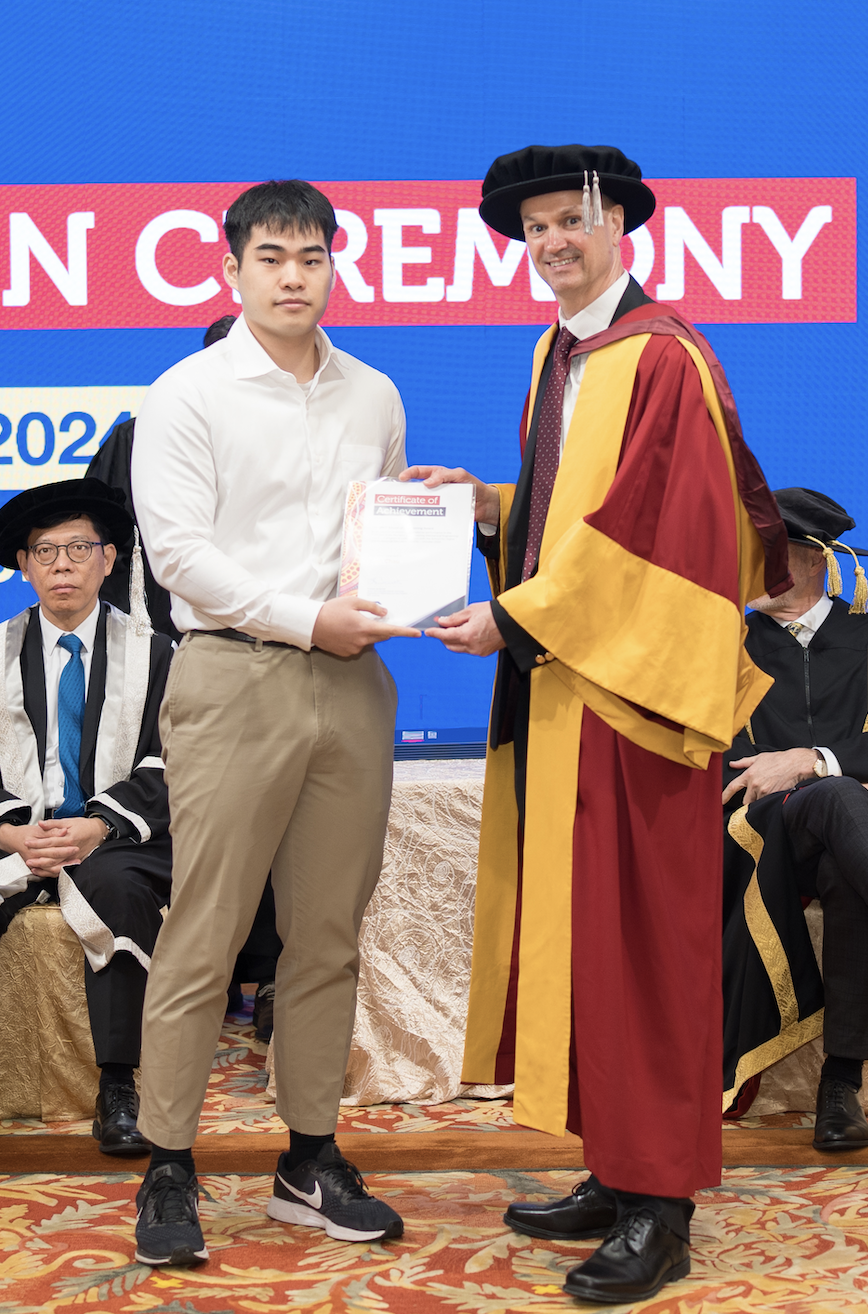 |
”SHAPE offers a fast-track bachelor’s degree that perfectly aligns with my passion for mechanical engineering. I was particularly impressed by Fluid mechanics and its real-world applications and challenges. The supportive lecturers from SHAPE and RMIT greatly enhanced my learning experience. The programme also provides job introductions as graduation approaches, boosting my career opportunities. Moving forward, I plan to gain work experience, pursue further studies, and earn a professional engineer license.“ Chau Gem Bachelor of Engineering (Mechanical Engineering) (Honours)
|
|
 |
"Studying for a Bachelor of Engineering (Mechanical Engineering) (Honours) at SHAPE X RMIT was an enriching experience that equipped me with valuable knowledge and professional skills. The programme offered a well-structured curriculum, ample resources, and hands-on learning opportunities, preparing me to become a well-rounded engineer. With access to the latest software, a comprehensive online library, and experienced lecturers, my training was holistic, shaping both my skill set and mindset. Chong Kam Ho
|
|
Financial Aids
The following HKSAR Government financial assistance schemes are available to eligible students who pursue this programme at SHAPE:
| Up to $35,120 per year [AY2026/27] |
|
|||
|
|
|
|||
|
|
||||
|
|
||||
For details including eligibility and subsidy amount, please refer to the hyperlink of each scheme.
* Please refer to the Programme Content section of this programme for the reimbursable courses under the CEF
Career Prospects
“This programme offered a broad curriculum that imparted much practical knowledge and provided me with competitive edges in my career. The 1-week Australia Residential Visit to RMIT University was a very impactful experience for the students – we were exposed to the biggest Wind Tunnel Laboratory and went through some laboratory experiments demonstrated by the RMIT lecturers.” Jacky Chan First Honours, Bachelor of Engineering (Mechanical Engineering) (Honours)
|
||
|
|
“The most precious moment of studying this programme was staying in Melbourne for a week with my classmates. We learned and did laboratory experiments together, as well as experienced the culture and entertainment in Australia. The lecturers were very friendly and patient in answering my questions encountered both at school and at work.” Lilian Chan
|
|
|
“The programme provided me with a comprehensive understanding of mechanical engineering principles and analysis. I gained practical experience by working on CAD drawing projects and applying my knowledge to real-world situations. The guidance and support from SHAPE lecturers helped me overcome numerous challenges, further enhancing my knowledge and skills across various engineering disciplines.” Chung Man Yan
|
||
Further Studies
Having been recognised at QF Level 5, this top-up degree programme meets the standard of locally-accredited bachelor's degree programmes. Upon graduation, students can pursue their further studies at Master’s degree level in Hong Kong or Overseas.
|
“Originally, I graduated with a business degree. However, due to the nature of my profession, I eventually developed a strong interest in engineering and recognized the growing demand for expertise in that field. After I completed HD in Mechanical Engineering, I was inspired to continue pursuing this bachelor’s degree, which provided me a solid foundation in the theoretical, practical, and experimental aspects of the discipline. This comprehensive training has enabled me to better understand and apply engineering principles in my daily work. Thanks to this strong foundation, I became eligible to apply for more specialized postgraduate programmes. Many master's degrees in the UK, particularly in engineering and welcome applicants with a background in mechanical engineering, have provided me with numerous academic opportunities. Given that my current profession is closely related to the marine industry, I decided to accept an unconditional offer to pursue an MSc in Naval Architecture at University College London in the coming academic year." Tsui Chun Yiu
|
||
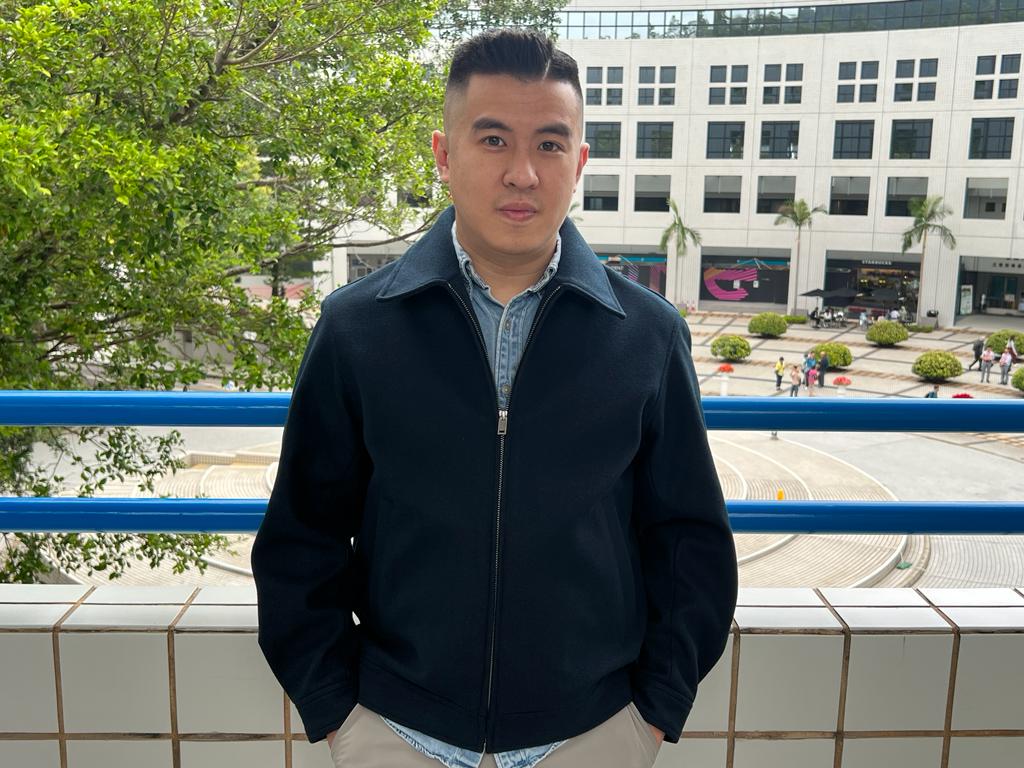 |
“The programme provided me with a comprehensive and solid understanding in the principles and applications of mechanical systems. This strong academic and practical foundation not only inspires me to further develop my engineering profession, but also equips me with the necessary knowledge and research skills to pursue a master’s degree.” Chan Kit Ho
|
|
| “The teaching by SHAPE lecturers was interactive. They encouraged students to take part in various engineering events and competitions, and helped us to enhance our thesis writing skills. I would like to express my sincere thanks to the lecturers for their supportive guidance and advice during my study. Upon graduation, I was admitted to MSc in Mechanical Engineering at the HKUST.” Ng Kwan
|
Student Awards
| Student | Award |
| Lau Kwan Lok | HKSAR Government Outstanding Performance Scholarship 2021-22 |
| Li Sing Wai | HKSAR Government Talent Development Scholarship 2020-21 and 2021-22 |
| Ng Wan Ching | HKSAR Government Reaching Out Award 2022-23 |
| Wong Siu Lam | HKSAR Government Reaching Out Award 2022-23 |
| Lee Lok Yi | HKSAR Government Reaching Out Award 2020-21 |
| Yip Tsun Yin | EAHK Outstanding Performance Scholarship 2021-22 |
| Chung Man Yan | EAHK Outstanding Performance Scholarship 2021-22 |
| Law Ka Ho | EAHK Outstanding Performance Scholarship 2021-22 |
| Tsoi Wing Lok | EAHK Outstanding Performance Scholarship 2021-22 |
| Chong Kam Ho | EAHK Outstanding Performance Scholarship 2021-22 |
|
|
||
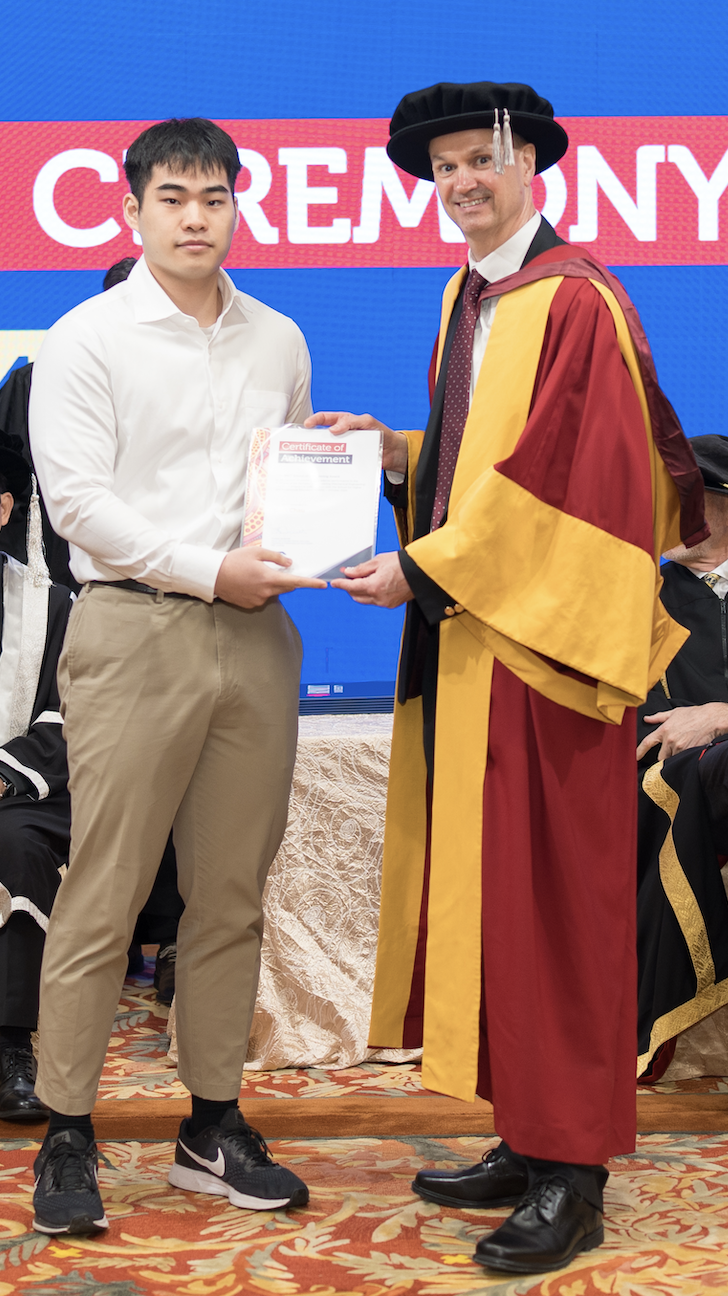 |
”SHAPE offers a fast-track bachelor’s degree that perfectly aligns with my passion for mechanical engineering. I was particularly impressed by Fluid mechanics and its real-world applications and challenges. The supportive lecturers from SHAPE and RMIT greatly enhanced my learning experience. The programme also provides job introductions as graduation approaches, boosting my career opportunities. Moving forward, I plan to gain work experience, pursue further studies, and earn a professional engineer license.“ Chau Gem Bachelor of Engineering (Mechanical Engineering) (Honours)
|
|
 |
"Studying for a Bachelor of Engineering (Mechanical Engineering) (Honours) at SHAPE X RMIT was an enriching experience that equipped me with valuable knowledge and professional skills. The programme offered a well-structured curriculum, ample resources, and hands-on learning opportunities, preparing me to become a well-rounded engineer. With access to the latest software, a comprehensive online library, and experienced lecturers, my training was holistic, shaping both my skill set and mindset. Chong Kam Ho
|
Graduation Ceremony
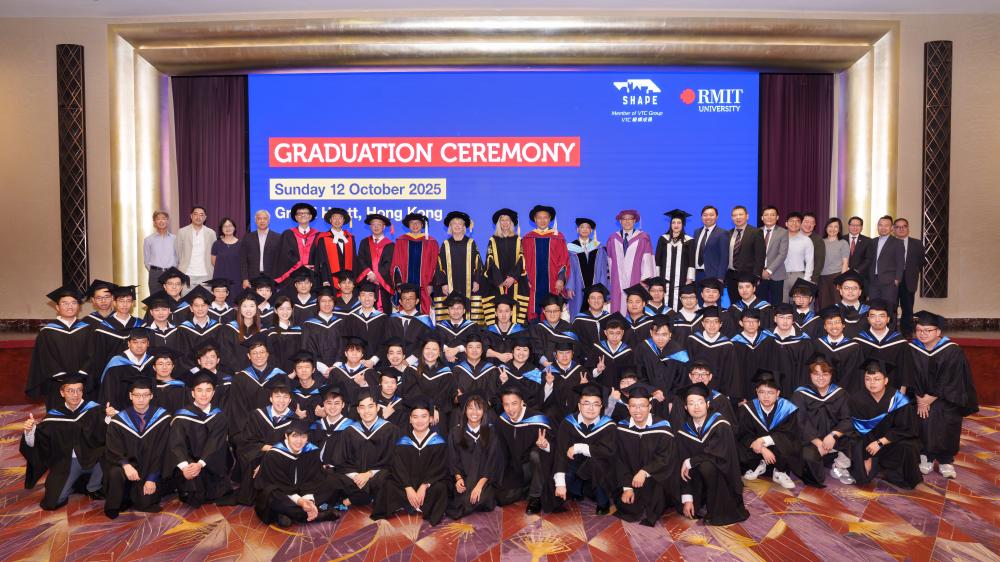
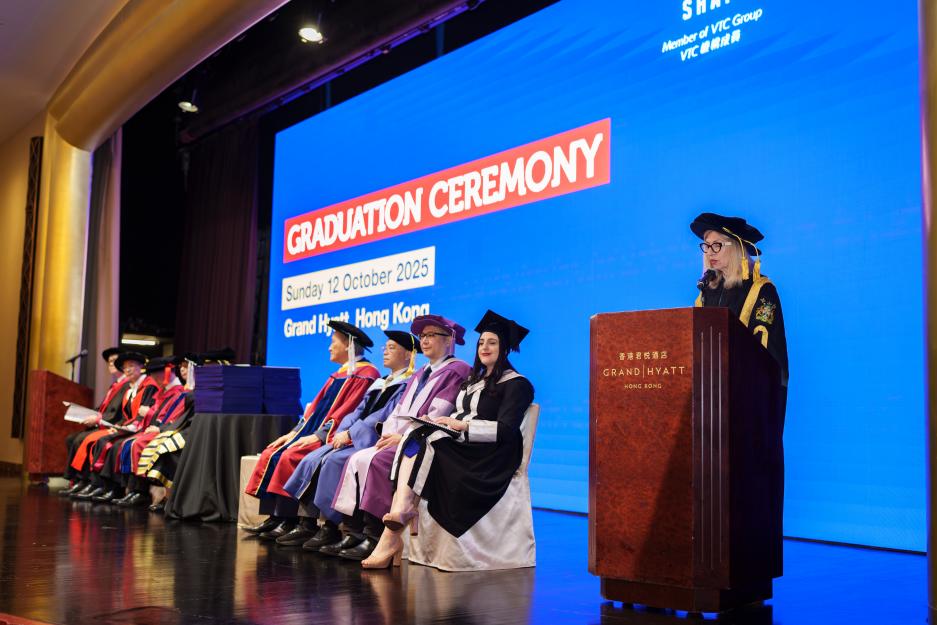
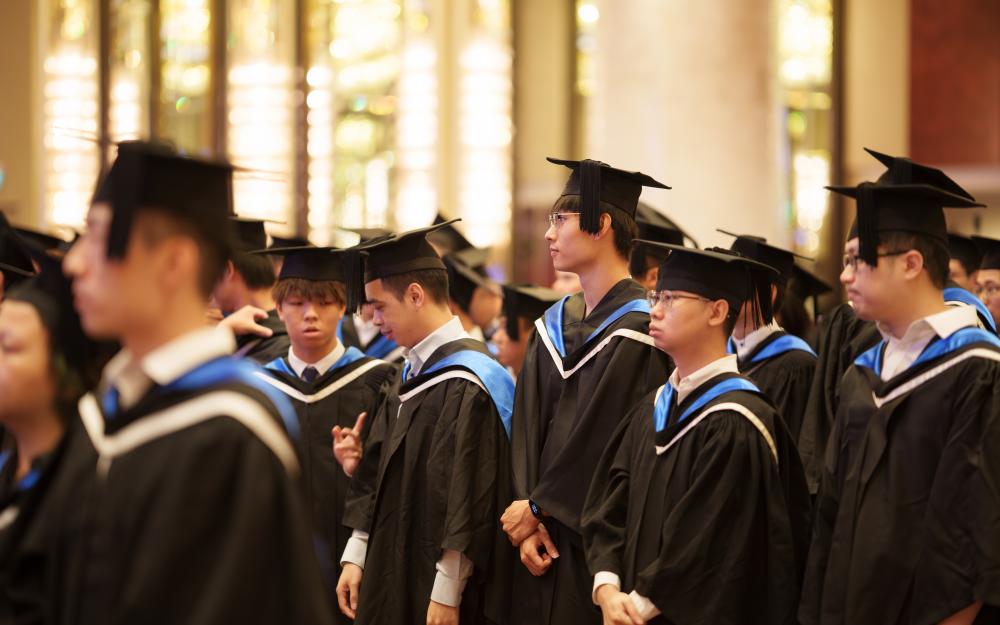
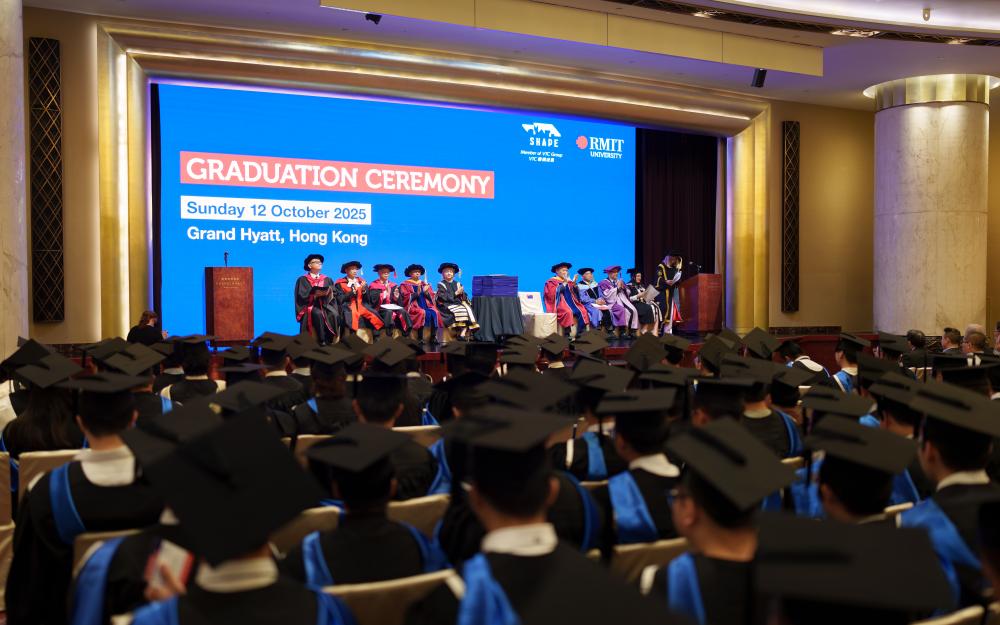
Enquiries
|
Programme Coordinator |
Ir. Yau Chun On |
|
Tel. no. |
2436 8615 |
|
|
|
|
|
|
|
General Enquiries |
Ms. Twinky Leung |
|
Tel. no. |
2436 8375 |
|
|

